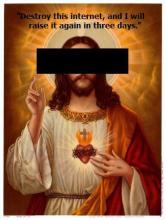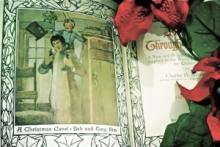Freedom
AFRICAN-AMERICAN women’s wisdom emerges from an experience of triple (or more) oppression. Denied the dignity of womanhood, condemned for their skin color, whether too dark or too light, and often imprisoned by mis-education, demeaning and meaningless work, and a denial of their very humanity, African-American women have yet managed to forge a spirituality of hope and survival that has sustained them for centuries.
As Alice Walker noted, they dreamed dreams and had visions; they imagined a time and place when the pain and indignity of their lives would be transcended, not in some far-off heaven but right here in the future of their children and their children’s children. Somehow our foremothers persisted in their faith. They made rosaries out of beads and knotted string and learned scripture by rote memory. They resisted as best they could anything and anyone who attempted to keep them from living their faith on a daily basis.
Once freedom, so-called, came, they struggled, despite the callous disregard of their fellow Christians, to remain faithful. When their children were forbidden entry into diocesan or public schools, when they were required to sit in upper galleries and back pews, when they had to wait until last to partake of the sacraments, they did not suffer these indignities quietly but often walked out and with their meager resources built their own schools and church buildings.

How do you step out and take a risk — as a pastor, as an artist, as a parent, as a person — when the job description of a pioneer or a vanguard comes with the assurance of persecution?
“Surrender the outcomes,” Rob Bell told the audience at his intimate gathering, Two Days with Rob Bell, in Southern California on Tuesday.
“Surrender the outcomes of your presence, your influence, your work, your leadership,” Bell said. “They may drink the coffee. They may not. That’s just how it is. When you come to terms with this, then you’re actually free.
In other words, it’s not about you.
If, as a pastor, parent, or person, if you do what you do because you’re called to do it — without expectations, without needing a particular response, without hitching your wagon of joy to someone else’s reaction (or lack thereof) — you free not only yourself, you liberate others as well.

"Wisdom wants to be free. As a Christian, I believe there is actually some theology to this....Wisdom is a woman and she stands at the gates of the city and she cries out to the people, 'Be free. Be free to love and be free to share.'...What if we understood creativity to be wisdom?"
Watch Tripp's v-log on SOPA, creativity, freedom and wisdom inside the blog...

The specter of Jacob Marley entered Scrooge’s room. It had been seven years to the day since Marley died.
Before he sees them, Scrooge hears the clanking of the heavy chains his old business partner now carries with him.
Scrooge asks how it is that Marley became thus fettered.
“I wear the chain I forge in life,” replied the Ghost. “I made it link by link, and yard by yard; I girded it on of my own free-will, and of my own free-will I wore it.”
Marley did not realize in life that he was a slave. He assumed that his wealth and the absence of external restraints meant he was free, when in fact his miserly and selfish ways were forging the means of his own bondage.
The Rev. Fred Shuttlesworth, a pioneer and giant of the civil rights movement, died Wednesday at 89.
Last Saturday, August 20, 2011, I got arrested. Having never been arrested before, it feels strange to write that. Like most Americans I associate getting arrested with committing egregiously unlawful acts that require punishment
Hidden Battles is a 65-minute documentary which follows a female Sandinista rebel, an Israeli officer, a Palestinian freedom fighter, and two American soldiers as they come to terms with their combat experiences. The film offers unique insight and hope into the internal conflicts that human beings around the world continue to face long after they have left the battlefield.
The documentary listens to the stories of these former soldiers as they reconcile what it means to have killed another human. A Vietnam veteran recalls that when he first killed, he was gripped by the feeling that he "did something -- literally against God." Watch this film and see how these veterans have fought to overcome. Each soldier deals with killing in his or her own unique way. Hidden Battles shows five ways in which this act is integrated into five different lives. Ultimately these stories testify to the resilience of the human spirit and hopefulness for the future.

But one thing has not changed even a little bit is the human condition. Parts of the Bible can feel hard to relate to until you get to a thing like this reading from Romans 7, in which Paul says, "I do not understand my own actions. For I do not do what I want, but I do the very thing I hate. I can will what is right, but I cannot do it. For I do not do the good I want, but the evil I do not want is what I do."
Finally. Something I can relate to. This I know about. I too do not understand my own actions. I too can't manage to consistently do what I know is right. Paul's simple description of the human condition is perhaps a most elegantly put definition of what we now call addiction.
It's no secret that I am a recovering alcoholic. By the grace of God I have been clean and sober for more than 19 years. But, boy, do I remember that feeling of powerlessness that comes from not being able to control your drinking. I'd wake up each morning and have a little talk with myself: "OK Nadia, get it together. Today is going to be different. You just need a little will power." Then, inevitably, later that day I'd say, "Well, just one drink would be OK," or, "I'll only drink wine and not vodka," or, "I'll drink a glass of water between drinks so that I won't get drunk." And sometimes it worked, but mostly it didn't. In the end, my will was just never "strong enough" Like Paul, I did the thing I hated. But that's addiction for you. It's ugly. Yet on some level I feel like we recovering alcoholics and drug addicts have it easy. I mean, our addictions are so obvious. The emotional, spiritual, and physical wreckage caused by alcoholism and drug addiction has a certain conspicuousness to it.
I hope that somehow, through the vast network we call social media, this gets to you in Tahrir Square, even on this momentous F